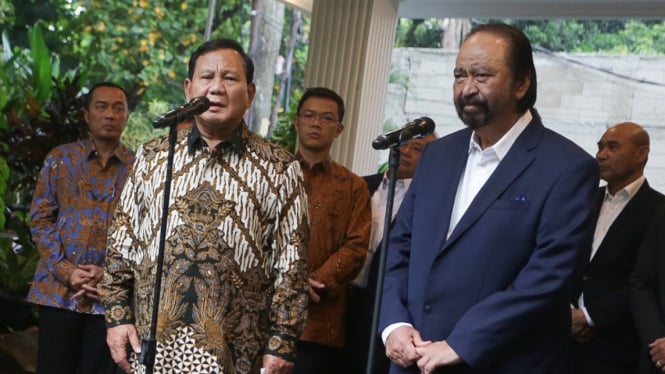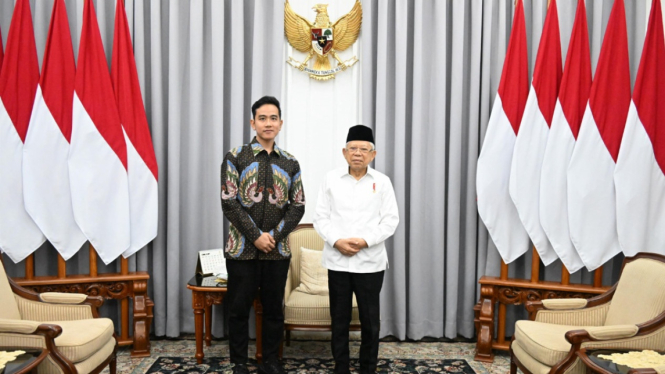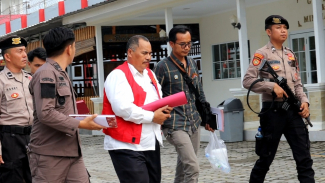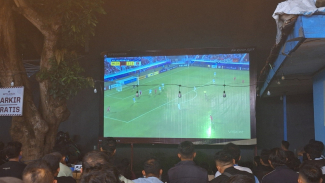A half century ago when the Asia Society was founded, Asia was frozen in a cold war, wracked by poverty, and seemingly destined for desolation. Few in or outside of Asia’s borders foresaw anything but a future of conflict, occupation, and despair. Today, the countries I will visit are at peace. Asia is on the cutting edge of so many of the world’s innovations and trends. It is a contributor to global culture, a global economic power, and a region of vital importance to the United States today and into our future.
Over the past 30 years, I’ve had the privilege of traveling to a very different Asia. Whenever I think back on my visits, it’s as if a movie reel of images, old and new, were running through my head. I think of the elegant temples of Kyoto, or the rituals of nomadic life outside Ulaanbaatar, the intricate handwork of traditional craftspeople in Chiang Rai, the vibrant markets of Hanoi, Hong Kong, and Dhaka; the grand hotels of Singapore and Manila, the calligraphers practicing their art in Xi’an, the historic dress of Seoul and the traditional dances of Jakarta, or the strum of the sitar in New Delhi.
And I’ve seen also the skyscrapers and factories, the urban corridors and high-tech campuses, the research facilities and modern hospitals – a continent where, now, more often than not, the rule of law and free elections have become or are in the process of becoming the norm, where entrepreneurship and innovation have transformed economies into global economic powers.
Asia has influenced world civilization for millennia, as it has our own culture. Our nation is home to 13 million Asian American citizens, and our daily life is so enriched by Asian literature and art, by music and movies, by food and architecture, medicine and science, technology and values.
Today, it is tempting to focus our attention on the tensions and perils of our interdependence, but I prefer to view our connectedness as an opportunity for dynamic and productive partnerships that can address both the challenge and the promise of this new century.
And that’s what I want to talk about today, how the United States is committed to a new era of diplomacy and development in which we will use smart power to work with historic allies and emerging nations to find regional and global solutions to common global problems.
As I’ve said before, America cannot solve the problems of the world alone, and the world cannot solve them without America.
At the same time, given the realities of today’s world, we can no longer approach our foreign policy solely country by country, or simply by carving the world into separate regions. With smart power, we will seek to build partnerships that transcend geographic and political boundaries.
In the months ahead, I will press for stronger bilateral, regional, and global cooperation when I meet with leaders of Europe, Latin America, the Middle East, and Africa, just as I will seek more robust engagement in my discussions with Asian leaders in Tokyo, Jakarta, Seoul, and Beijing next week.
In making my first trip as Secretary of State to Asia, I hope to signal that we need strong partners across the Pacific, just as we need strong partners across the Atlantic. We are, after all, both a transatlantic and a transpacific power.
Our relationships with each of the countries I’m visiting, and with all of our partners and allies throughout Asia and the Pacific, are indispensable to our security and prosperity. When we consider the gravest global threats confronting us – financial instability and economic dislocation, terrorism and weapons of mass destruction, food security and health emergencies, climate change and energy vulnerability, stateless criminal cartels and human exploitation – it is clear that these threats do not stop at borders or oceans. Pandemics threaten school children in Jakarta and Jacksonville. Global financial crises shrink bank accounts in Sapporo and San Francisco. The dangers posed by nuclear proliferation create worries in Guangzhou as well as Washington. And climate change affects the livelihoods of farmers in China’s Hunan province and in America’s Midwest. These dangers affect us all, and therefore we all must play a role in addressing them.
So I leave for Asia ready to deliver a message about America’s desire for more rigorous and persistent commitment and engagement, ready to work with leaders in Asia to resolve the economic crisis that threatens the Pacific as much as any other region, ready to strengthen our historic partnerships and alliances while developing deeper bonds with all nations, ready to help prevent the proliferation of nuclear weapons in Asia, ready to expand our combined efforts on 21st century challenges like climate change and clean energy, pandemics, and income inequality.
In the Obama Administration, we are also ready to reach beyond ministerial buildings and official meeting halls, as important as those are. We’re ready to engage civil society to strengthen the foundations needed to support good governance, free elections, and a free press, wider educational opportunities, stronger healthcare systems, religious tolerance, and human rights.
And we are ready to listen. Actively listening to our partners isn’t just a way of demonstrating respect. It can also be a source of ideas to fuel our common efforts. Too often in the recent past, our government has acted reflexively before considering available facts and evidence, or hearing the perspectives of others. But President Obama and I are committed to a foreign policy that is neither impulsive nor ideological, one that values what others have to say. And when we have differences, which we will, we will discuss them frankly and specify those which limit our capacity to cooperate. As part of our dialogues, we will hold ourselves and others accountable as we work to expand human rights and create a world that respects those rights, one where Nobel Peace Prize winner Aung San Suu Kyi can live freely in her own country, where the people of North Korea can freely choose their own leaders, and where Tibetans and all Chinese people can enjoy religious freedom without fear of prosecution.
Existing problems today, we believe, are opportunities as well. Exercising smart power begins with realistic assessments of the world we inhabit. And this obliges us, no less than other nations, to acknowledge our own contributions to the global problems we face.
Let me start with the global financial crisis that hit us first and hit us deeply. Across the United States today, families are losing jobs, homes, savings, and dreams. But this is not our crisis alone. Its repercussions are also being felt in parts of Asia and elsewhere around the world. We have recently heard forecasts from South Korea’s new finance minister that their economy will shrink by 2 percent this year, with 200,000 jobs potentially lost. A Chinese Government survey of villages last week reported that 20 million of the nation’s 130 million migrant workers are unemployed. In Japan, a new analysis predicts a larger economic contraction than previously forecast. Indonesia’s exports fell by more than 20 percent in December as growth estimates have also fallen. And Taiwan’s economy reported a record 44 percent drop in exports. Throughout Asia, the demand for durable goods is way down.
The global financial crisis requires every nation to look inward for solutions, but none of us can afford to become so introspective that we overlook the critical role that international partnerships must play in stabilizing the world’s economy and putting all of us back on the path to prosperity. And we cannot respond with a race to erect trade and other barriers. We must remain committed to a system of open and fair trade.
Here at home, our government is working to address the housing crisis and restore the banking system. Congress is expected to pass a stimulus package that represents the largest government effort in a generation to create jobs and increase incomes. China, Australia, and others in Asia are responding vigorously. We need multiple engines working together to reignite global growth.
At the G-20 meeting in Washington in November, leaders pledged to take actions from adjusting fiscal policy to strengthening domestic regulation. The upcoming G-20 meeting in April in London will provide us with an opportunity to build on that pledge.
Like the financial crisis, other issues also require bilateral as well as regional and global approaches. The United States is committed to maintaining our historic security alliances in Asia and building on those relationships to counter the complex global threats we face. I’m very pleased that Japan and South Korea this week agreed to joint assistance for reconstruction efforts in Afghanistan, and that both countries continue to work with us on global security, especially in combating piracy off the Horn of Africa.
We will need to work together to address the most acute challenge to stability in Northeast Asia, North Korea’s nuclear program. The Obama Administration is committed to working through the Six-Party Talks, and I will discuss with South Korea, Japan, and China how best to get the negotiations back on track. We believe we have an opportunity to move these discussions forward, but it is incumbent upon North Korea to avoid any provocative action and unhelpful rhetoric toward South Korea.
The North Korean Government has committed to abandoning all nuclear weapons and to return at an early date to the Treaty on Nonproliferation of Nuclear Weapons. We continue to hold them to those commitments. If North Korea is genuinely prepared to completely and verifiably eliminate their nuclear weapons program, the Obama Administration will be willing to normalize bilateral relations, replace the peninsula’s longstanding armistice agreements with a permanent peace treaty, and assist in meeting the energy and other economic needs of the North Korean people.
On a related matter, I will assure our allies in Japan that we have not forgotten the families of Japanese citizens abducted to North Korea. And I will meet with some of those families in Tokyo next week.
Global solutions are essential to addressing climate change and the need for clean sources of energy. Now, climate change is not just an environmental nor an energy issue, it also has implications for our health and our economies and our security, all wrapped up in one.
The rapid appointment that the President and I made of a United States Special Envoy for Climate Change reflects the seriousness we feel about dealing with this urgent threat. And I will be taking Special Envoy Todd Stern with me to Asia next week to begin the discussions that we hope will create the opportunities for cooperation.
Now, our nation has been the largest historic emitter of greenhouse gases, and we acknowledge that we must lead efforts to cut harmful emissions and build a lower-carbon economy. But each of the countries that I’m visiting also have a role to play in this effort. I will press the case for clean energy in both Japan and South Korea, and look for ways to work with Indonesia as well. Orville Schell’s commentary in Time magazine this week reminds us that collaboration on clean energy and greater efficiency offers a real opportunity to deepen the overall U.S.-Chinese relationship. So we will work hard with the Chinese to create partnerships that promote cleaner energy sources, greater energy efficiency, technology transfers that can benefit both countries, and other strategies that simultaneously protect the environment and promote economic growth.
While in Beijing, I will visit a clean thermal power plant built with GE and Chinese technology. It serves as an example of the kind of job-creating, bilateral, public-private collaboration that we need so much more of.
Now, you may have heard me describe the portfolio of the State Department as including two of national security’s three Ds: defense, diplomacy, and development. Each is essential to advancing our interests and our security. Yet too often, development is regarded as peripheral to our larger foreign policy objectives. This will not be the case in the Obama Administration. We will energetically promote development around the world to expand opportunities that enable citizens, particularly on the margins, and particularly women and children, to fulfill their God-given potential, which we happen to believe will advance our shared security interests. That much of Asia enjoys peace and prosperity today is due in no small part to American efforts over the last half century to support political, economic, security, and educational alliances with Asian nations.
We are proud to have lent American assistance in response to natural disasters, including rebuilding efforts after the tsunami in Indonesia and the cyclone in Burma. And we commend the Indonesian people and government for settling longstanding civil conflict in Aceh that threatened the country’s progress, and for similar positive efforts to achieve peace and stability that are working in Timor-Leste.
Indonesia is one of Asia’s most dynamic nations, where human energy and aspiration combine to help lead the country to a free and fair system of elections, a free press, a robust civil society, and a prominent role for women in the Indonesian Government. We will support Indonesia and other countries in the region that are actively promoting shared values. And we look forward to working with our other partners and friends in the regions, allies like Thailand and the Philippines, along with Singapore, Malaysia, and Vietnam, to ensure that ASEAN can live up to its charter, to demonstrate the region’s capacity for leadership on economic, political, human rights, and social issues.
Let me now give you a brief rundown of some of the key issues that I will be addressing next week, country by country, starting with my first stop in Japan. Our security alliance with Japan, 50 years old next year, has been, and must remain, unshakable. In Tokyo, I will sign the Guam International Agreement, which will position our security alliance to meet the challenges of this time by moving 8,000 American troops from Okinawa to Guam. Japan is also to be commended for taking on a bigger leadership role in addressing the economic crisis in Pakistan and for working on collaborative efforts to explore space, cure disease, and offer relief to victims of disasters around the world. We anticipate an even stronger partnership with Japan that helps preserve the peace and stability of Asia and increasingly focuses on global challenges, from disaster relief to advancing education for girls in Afghanistan and Pakistan to alleviating poverty in Africa.
We also will focus on the very fertile ground for cooperation that we believe exists with Indonesia. I don’t need to remind you that our new President is well known and much admired there. We now have an opportunity for stronger partnerships on education, energy, and food security. The Indonesian Government has also suggested the creation of a deeper partnership with the United States. This idea represents a positive approach to areas of common concern, and we are committed to working with Indonesia to pursue such a partnership with a concrete agenda.
In South Korea, we will be visiting with one of our staunchest historic allies. And certainly, everyone who has followed the history of South Korea joins me in admiration for the transition that we have observed from static conditions of the past century to the dynamic state that South Korea finds itself in today. The United States and South Korea are both committed to expanding trade in a manner that benefits both of our countries, and we will work together to that end.
As members of the Asia Society, you know very well how important China is and how essential it is that we have a positive, cooperative relationship. It is vital to peace and prosperity, not only in the Asia-Pacific region, but worldwide. Our mutual economic engagement with China was evident during the economic growth of the past two decades. It is even clearer now in economic hard times and in the array – excuse me – in the array of global challenges we face, from nuclear security to climate change to pandemic disease and so much else.
Now, some believe that China on the rise is, by definition, an adversary. To the contrary, we believe that the United States and China can benefit from and contribute to each other’s successes. It is in our interest to work harder to build on areas of common concern and shared opportunities. China has already asserted itself in positive ways as chair of the Six-Party Talks and in its participation in international peacekeeping efforts. And our two countries, I’m happy to say, will resume mid-level military-to-military discussions later this month. And we look forward to further improved relations across the Taiwan Strait.
Even with our differences, the United States will remain committed to pursuing a positive relationship with China, one that we believe is essential to America’s future peace, progress, and prosperity.
An ancient Chinese story tells of warring feudal states, whose soldiers find themselves on a boat together crossing a wide river in a storm. Instead of fighting one another, they work together and survive. Now, from this story comes a Chinese aphorism that says, “When you are in a common boat, you need to cross the river peacefully together.” The wisdom of that aphorism must continue to guide us today.
So I will leave for Asia Sunday with a firm commitment to work very hard with our partners across the Pacific, to strengthen our engagement so that the positive transformations of the past half-century are replicated, mirrored, made stronger and more obvious in this century. We have such an opportunity that I hope we will seize, but it is not just up to our government to do so. It is also up to Americans across our country, those of you here in the Asia Society, in the private sector, in academia, in labor and the professions, in nongovernmental organizations all. Let us commit ourselves to providing the kind of outreach and responsiveness, understanding, and commitment that will lead not just to a better understanding, but positive actions to improve the lives of our own people here and those who live in Asia today.
--
* Based on a speech by United States Secretary of State Hillary Rodham Clinton at the Asia Society, New York, 13 February, 2009.














